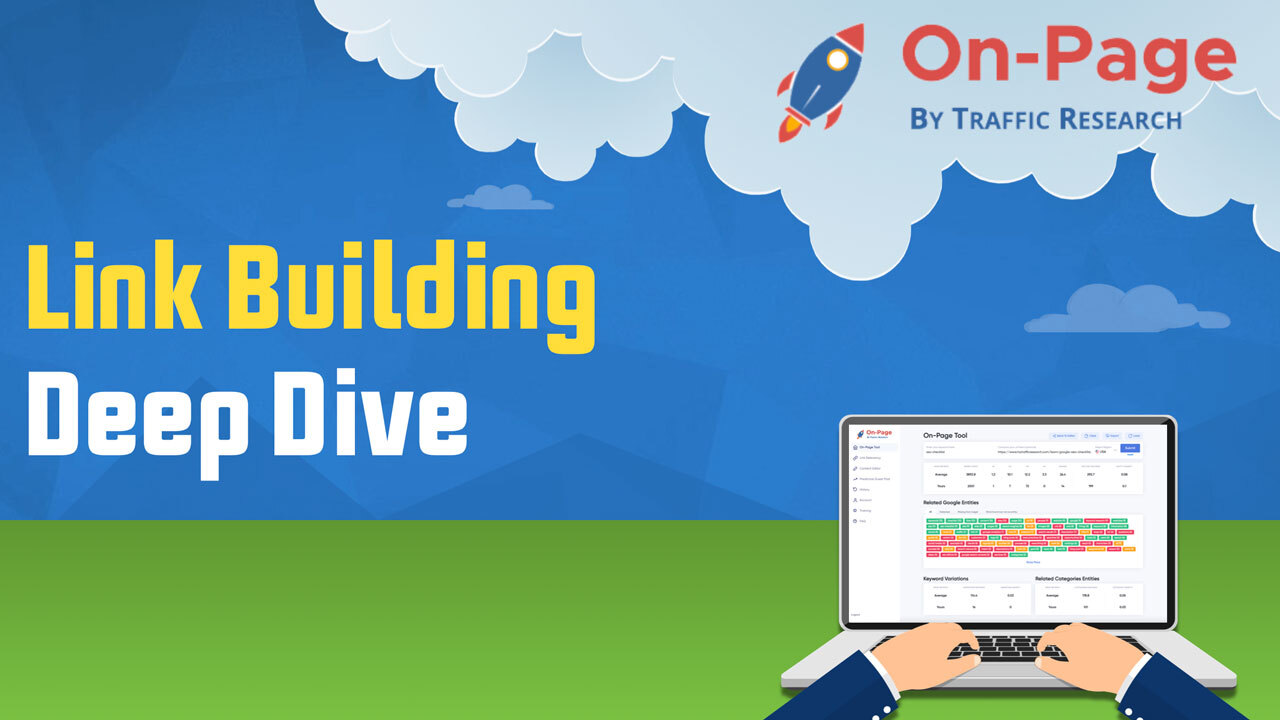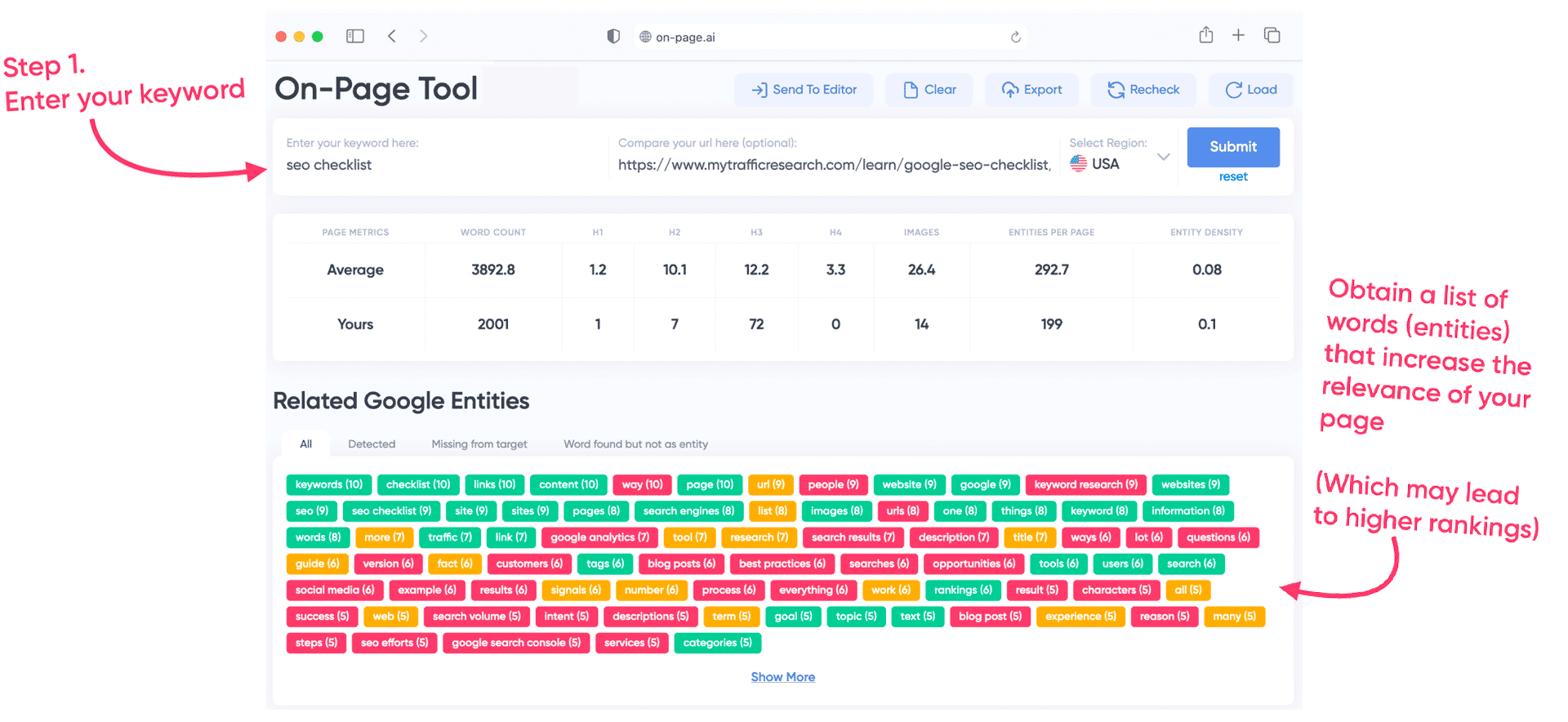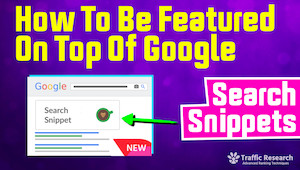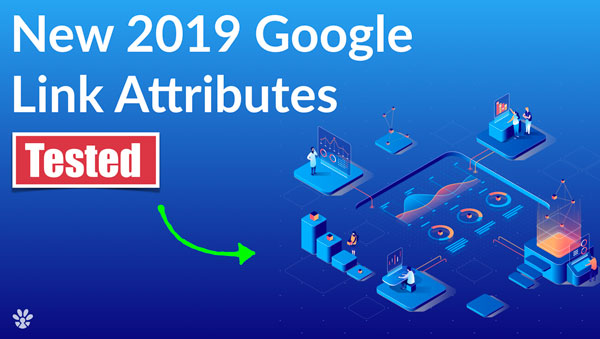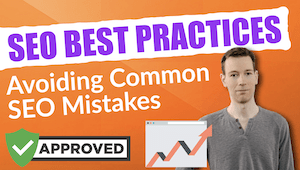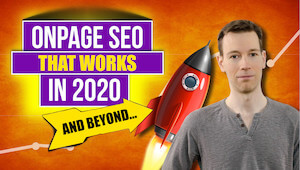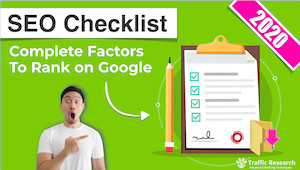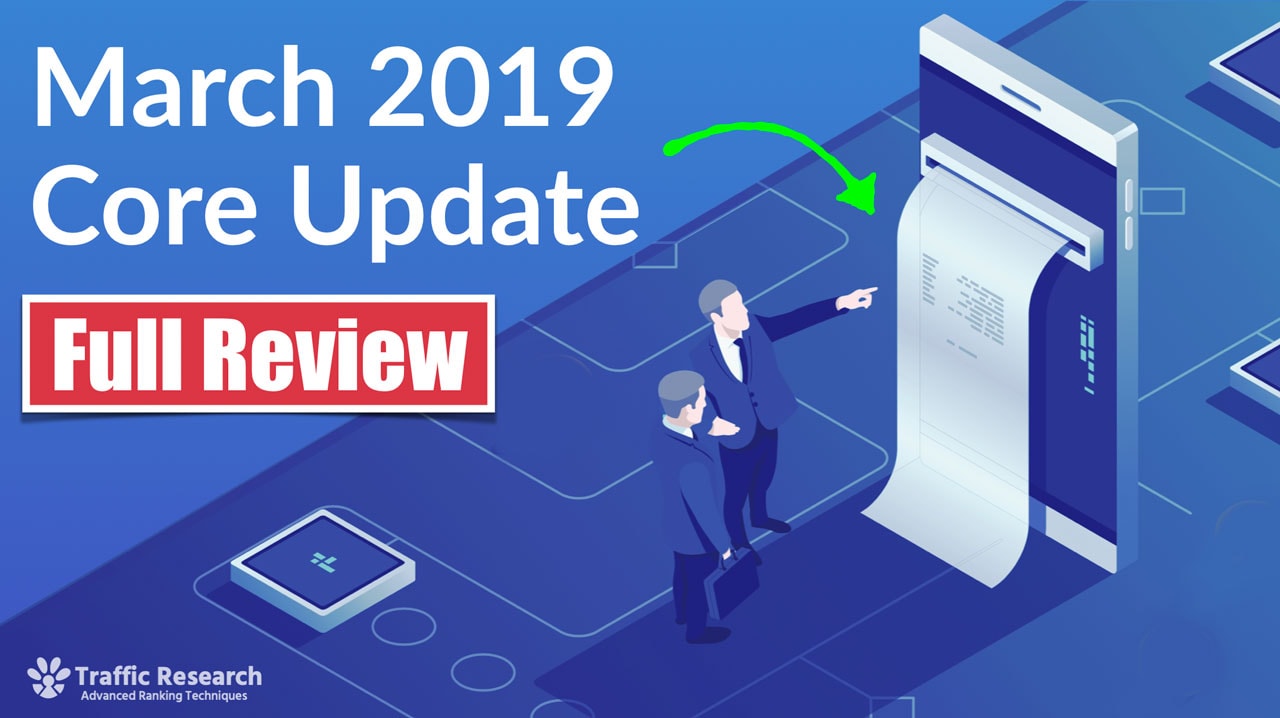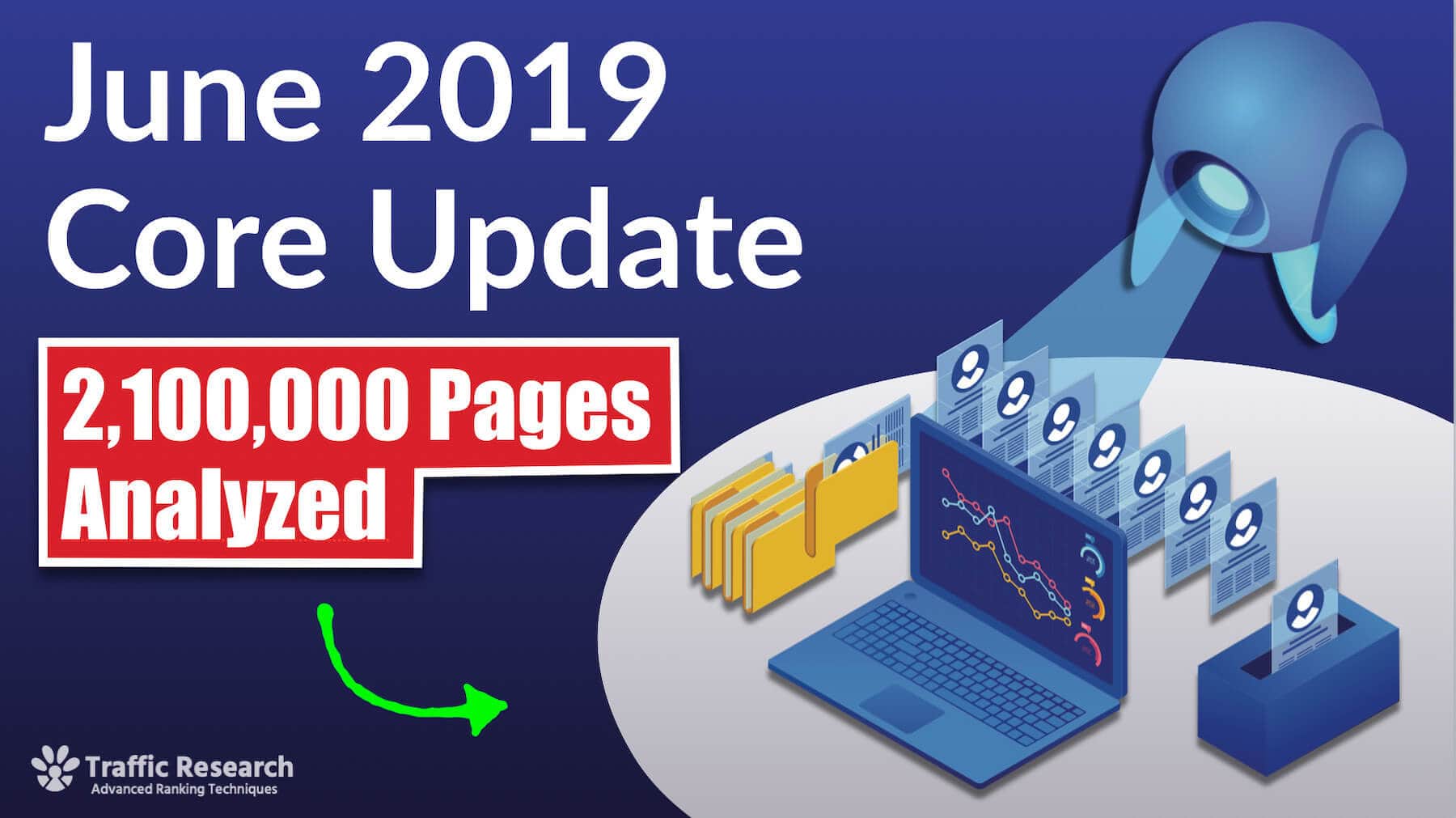Tested: New Google Link Attributes (Sponsored, UGC) vs No-Follow, Do-Follow
- by Eric Lancheres March 25, 2019
On Sep 10th 2019, when Google introduced the link attributes, you were either excited or feeling kind of old. (15 years have passed since Google introduced any new link types)
The new link attributes being introduced are:
rel="sponsored"
rel="ugc"
They join rel="nofollow" as one of the links we want to avoid when ranking a site!
(Just kidding... well... only slightly)
These new link types are being added to further specify the type of content that is linking out. Sponsored being for sponsored content and ugc being for user generated content.
Simple enough...
However, the big question on everyone's mind is:
"How do these new links perform when compared to do-follow and no-follow?"
Let's find out!

The Test
This test focuses on the different link types in order to gain a better understanding of the impact on search engine rankings. While there might be some debate surrounding our methodology (for instance, Google said we shouldn't test SEO factors), we tried to produce a repeatable test that others could replicate.
As always, we're not here to debate (If our lack of social media presence is any indication, we're not good at it either), we're just providing data (for free) that can help others.
If you would like to submit additional data or request data be removed, please contact me.
Any Google Search employees that would like to submit corrections or refute any information here are also welcome to contact me.
For this experiment, we created:
- 20 different articles
- 10 different links
On 2 real websites.
We are presenting our data "as-is" and would like to remind you that correlation does not imply causation. Feel free to come up with your own conclusions and to test this for yourself.
Setup
We created 5 similar pages on the source site and linked to 5 similar pages on the target site. All the pages on the target site were competing for the same Google keyword.
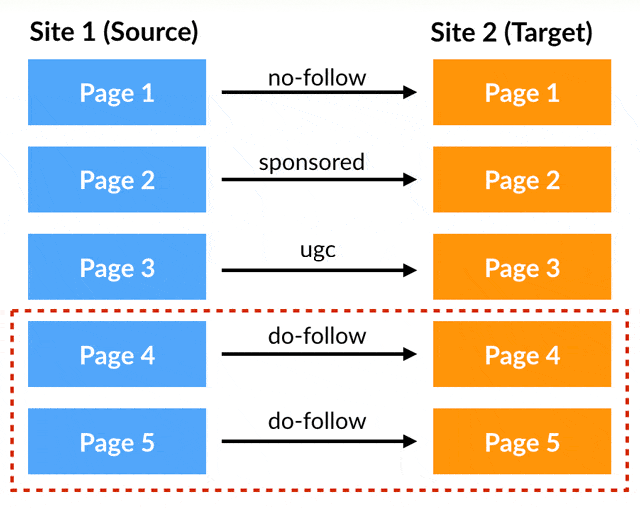
In order to increase the accuracy of our test (as much as possible because this wasn't a closed environment test), we replicated our test twice.
- The test took 3 weeks to conduct.
- We created 20 similar pages for the experiment.
- We created 10 backlinks to test the different attributes.
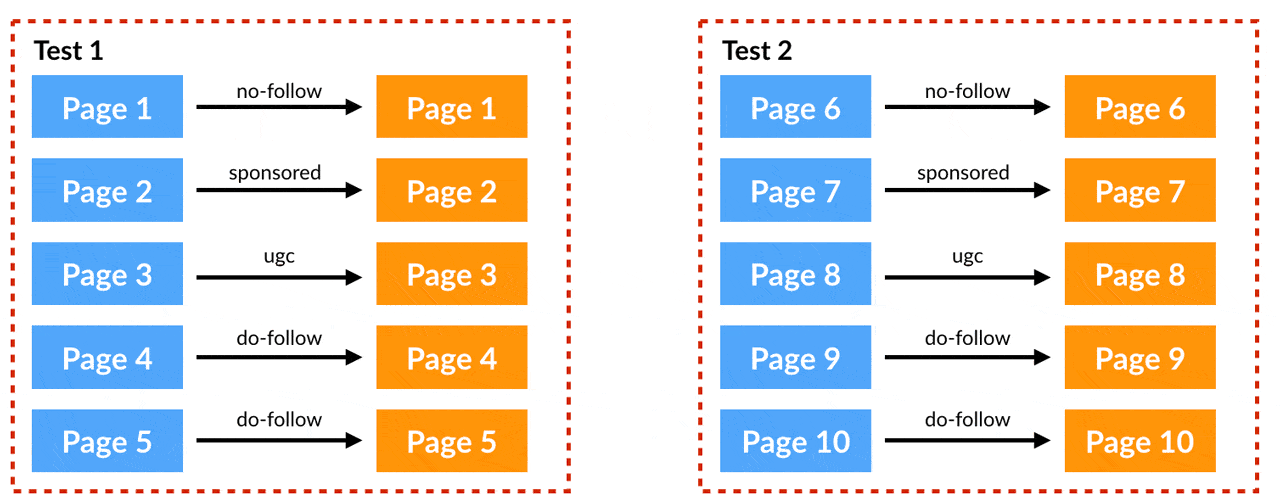
Once all the pages were indexed in Google, we waited and monitored the rankings.
The Results
Historically, we've noticed that for the best results, we need to wait approximately 3 weeks before rankings stabilize. During the first few weeks, Google randomly tests the results (perhaps in an effort to throw off SEOs) in what's been coined the "Google shuffle".
We used a single Google data center to perform the searches (to minimize variability) as different data centers sometimes provide different results.
These are the results we observed.
Link Test 1
The initial results were properly mixed and throughout the 3 weeks, we briefly saw the content receiving the UGC link rise to the top...
However, that was short-lived (and likely due to the Google shuffle) as it promptly returned to 4th place as the results settled.
In the end, we're left with the do-follow links at the top (as expected) and an even mix at the bottom, with the no-follow link being in the middle.
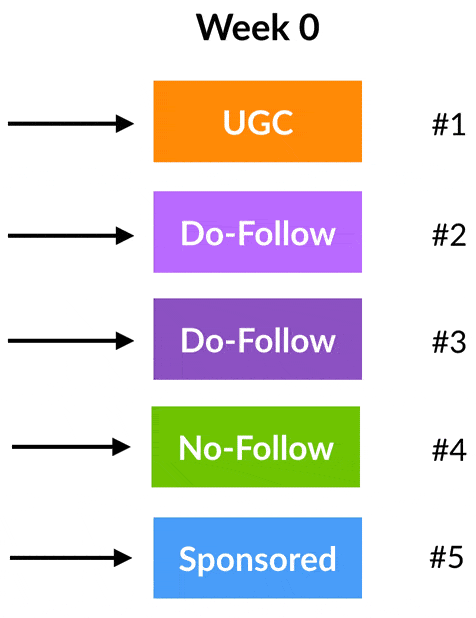
Link Test 2
In our second test, the content receiving the do-follow links started (and stayed) at the top the entire time.
The battle for third was interesting as the new link type seemed to alternate with no-follow.
Eventually, the sponsored link settled in 3rd position, with the no-follow in 4th and ugc in last.
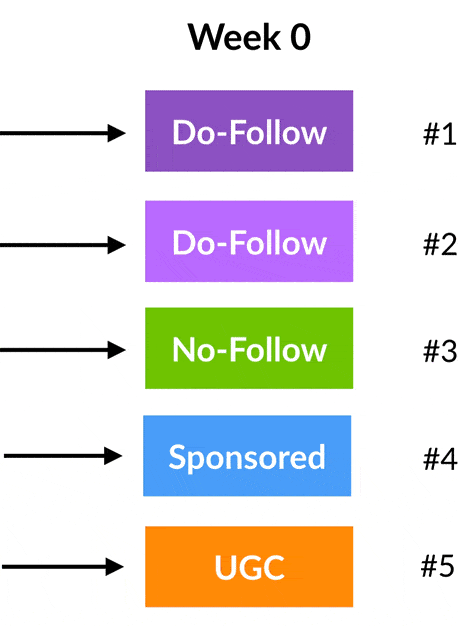
Final Results
We've been quite fortunate with these final results as they provide us with insights into the new link types.
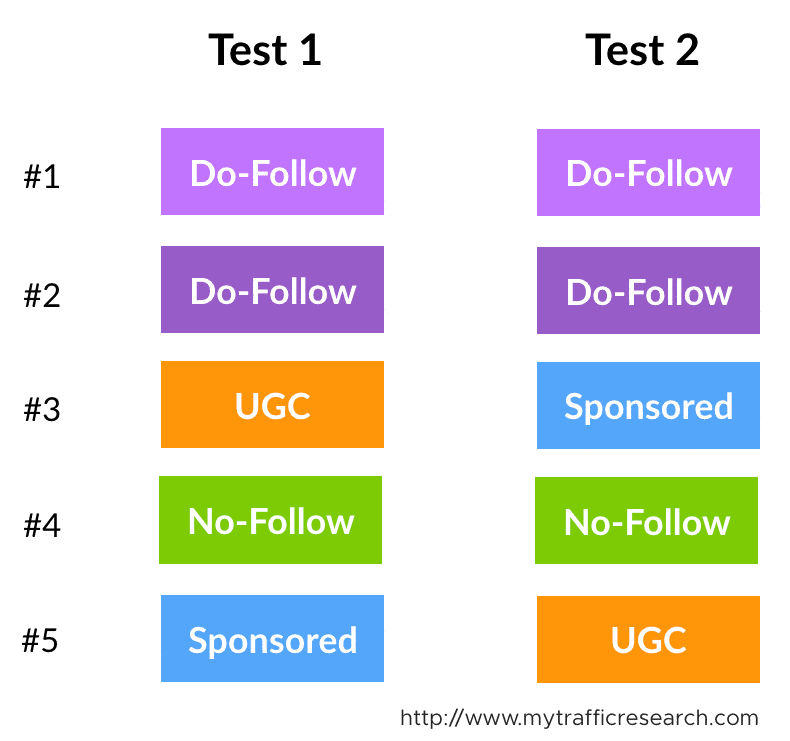
1. We clearly see that do-follow links are the most powerful links (as expected). In both tests, all the content receiving do-follow links ranked on top.
2. We were fortunate enough to have a healthy mix of results which tells us that the new link types are equally as powerful as the already established "no-follow" link.
The results could not have more perfect with the no-follow being sandwiched in 4th place as "sponsored" and "ugc" battled attributes battled it out.
As it stands, we'd say that "no-follow", "sponsored" and "ugc" are pretty much even.
Closing Thoughts
At the moment, very few websites use rel="sponsored" and rel="ugc" attributes so it makes sense for Google to treat them like no-follow links.
However in the future, as more websites adopt the new attributes, Google may refine and change how they count the links. In fact, I'd say it's likely that it will change in the future (otherwise, why would have Google introduced these new link attributes?)
As of today, the tests clearly show that do-follow links are still the best for increasing Google rankings. No surprise here.
What is interesting is that all the new attributes perform very similarly at the moment. They can provide some ranking benefits but perhaps not as much as do-follow links. We look forward to retesting the power of each link in the future as Google rolls out additional updates.
To stay up to date on the latest ranking techniques, on-page factors, new untapped backlink sources, exclusive software and private community forum, visit Eric's Traffic Research and join the hundreds of SEO professionals profiting from first-hand insights.
Have Feedback?
About The Author
Eric Lancheres is credited with being the first SEO professional to discover the solution to the Panda & Penguin Updates. You may have read his recent Google core analysis, seen his schema case study (26.3% increase) or participated in his live training.
In his coaching, Eric has helped dozens of entrepreneurs recover from Google penalties through his SEO consulting and regularly helps businesses raise their profits by 20-75%. Additionally, on his own, he’s created affiliate websites that sometimes generate up to 50,000 in a month, entirely on organic traffic.
These achievements have made him a featured speaker at Traffic & Conversion Summit, SEO Rockstars, & Internet Marketing Party. Although he is no longer taking on clients, he currently coaches and helps people with SEO challenges inside Traffic Research.

